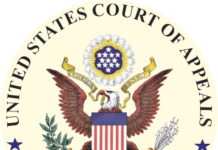The Kansas Supreme Court on Saturday morning struggled with a “huge” flaw in a resolution giving legislative leaders the power to revoke an executive order limiting the size of church activities to combat the spread of the coronavirus.
Convening in an unusual Saturday session through a video conference call, the justices zeroed in on a section of the resolution ratifying the governor’s emergency powers to respond to the public health emergency facing the state.
The hearing, for the most part, lacked much discussion about broad issues of religious freedom, executive power and political bartering and instead focused on the technical issue of how the legislation was drafted.
The justices questioned whether the Legislative Coordinating Council — made up of Republican and Democratic leaders — had the power to review the governor’s emergency declaration under the narrow wording of the resolution.
The court made its interest in the resolution’s wording known Friday night when it issued an order telling lawyers on both sides to be prepared to address questions on the issue.
At issue was a section of the resolution that said the LCC could only act after the state Finance Council agreed to extend the governor’s emergency declaration, which expires May 1.
In this case, the Finance Council, whose members include legislative leadership, the governor and chairs of the House and Senate budget committees, had not yet acted on the governor’s emergency directives.
“It looks like according to just the plain text of the resolution that the Legislature…has given up any ability short of reconvening to override any executive order promulgated prior to May 1,” Justice Caleb Stegall said.
As he questioned the LCC’s legal counsel, Stegall pressed for an answer about how to get past the language of the wording in the resolution that said the panel could act after the Finance Council extended the emergency declaration.
“What do we do with that language?” Stegall asked. “What is the proper resolution for this court? Do we just write that portion out of the resolution? I am just trying to find a path through this text that gets you to the LCC.”
Justice Carol Beier raised a similar concern about the language contained in the resolution.
“The state Finance Council hasn’t done anything yet,” Beier said. “So how do you get to the LCC when Section 2 starts with, ‘following such state Finance Council action’?”
Under questioning from Beier, the LCC’s lawyer, Bradley Schlozman, essentially agreed the emergency disaster resolution should be disregarded.
Instead, he argued the justices should look to the legislation that created the LCC for the powers it used to revoke the governor’s executive power.
But Justice Eric Rosen questioned the power of the LCC, noting that its authority seemed administrative in nature.
“Are there any limitations to what the LCC can do when the Legislature is not in session?” he asked.
“Can they adopt, pass laws?” he asked. “Given the nature of the situation we’re in, is there any limitation on their power at all?
“Does the Legislature delegate all legislative power to the LCC in these circumstances?”
Schlozman argued that the LCC did have broad powers.
“I think you would want that in circumstances involving an emergency like we’re dealing with here,” he said.
“The fallback positon is if they don’t have the ability to act in the absence of the full Legislature, then you’re essentially forcing the Legislature to confer unbridled discretion on the governor and eliminating any notion of checks and balances,” Schlozman told the court.
He said lawmakers and the governor’s office were aware the there was a drafting problem with the resolution when it was adopted last month as lawmakers were racing to leave the Capitol as the pandemic took hold in Kansas.
“The attorney general advised them — it was my understanding — that this was going to be a problem, and the Legislature and the governor’s office said, ‘Well, let’s just go forward because we’re dealing with extraordinary times here,'” Schlozman said.
It was a remark that appeared to have left Stegall stunned.
“Given that extraordinary set of facts — if I presume that they’re accurate — that everyone involved recognized the problem and decided to move forward regardless, what is a court supposed to do with that, with those facts?” he asked.
Beier said the court was limited in addressing a legal flaw in legislation, even if it would be difficult during the pandemic for lawmakers to return to Topeka to fix the issue.
“We still have a fundamental problem that the basic rule is that the courts do not strike language, add language, rewrite language,” she said. “We just don’t write statutes for the Legislature.”
The case is an outgrowth of Gov. Laura Kelly’s executive order limiting the size of religious gatherings to 10 or fewer people in an effort to contain the spread of COVID-19.
Kelly signed the order Tuesday in response to clusters of COVID-19 cases, including three tied to churches.
The order set off a showdown with Republican lawmakers during one of the holiest weeks on the Christian and Jewish calendars.
The Republican majority on the LCC voted 5-2 along party lines to revoke the executive orders prompting the governor to file a lawsuit in advance of the Easter weekend.
While agreeing with the need to avoid mass gatherings on Easter Sunday, Republican leadership argued against the order because it treated religious organizations differently than secular businesses.
Republican leaders objected to the penalties for violating the order, which include 12 months in jail and a $2,500 fine.
They said they would be willing to go along with the resolution if the governor agreed to drop the penalties. She refused.
The governor has accused lawmakers outright of putting the health of Kansans in jeopardy, with her health secretary at one point going on Twitter to admonish them.
















